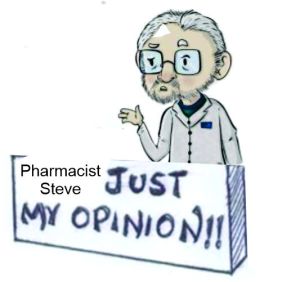
What is it with bureaucrats, they seem to like to “play games” with people’s lives. Congress screws around with passing annual budgets and this year.. LAST MINUTE that passed a 45 day continued resolution to post pone the job that they knew was due since everyone claim to office. There was the threat of many of the 2 million people who work for the Fed bureaucracy – would not get paid – but just like all the other times that Congress did this.. they could come around after the “financial crisis” was over and pay all the employees the paid that they were due, and got nothing more/less than a extra paid vacation.
Now here we are again with the DEA playing with pt’s quality of life issues and just putting ANOTHER BANDAID on the issue. Practitioners and staff can’t budget long term, pts never knows when the DEA is going to take some sort of action and turn their Quality of Life issues upside down.
Here is a blog post from the first of 2023 the DEA told Newsweek it’s not responsible for pts inability to get prescriptions
I don’t know what is worse, the DEA can say that with a straight face -or – the media believes such statements as FACT !!
DEA again extends telemedicine flexibilities
https://www.cnn.com/2023/10/10/health/dea-extends-controlled-medication-telehealth-flexibilities-wellness/index.html
With a November cutoff looming, the United States Drug Enforcement Administration has for a second time extended temporary rules allowing prescription of controlled medications via telehealth.
These rules, established during the Covid-19 pandemic, are an exception to the conditions of a law known as the Ryan Haight Act, which require at least one in-person medical examination before a doctor can prescribe a controlled medicine, including stimulant medications for attention-deficit hyperactivity disorder, benzodiazepines for anxiety, and drugs for opioid use disorder, sleep or pain, said Dr. Shabana Khan, chair of the American Psychiatric Association’s Committee on Telepsychiatry, in a previous interview with CNN.
There is more to worry about than long Covid, study shows. You could get a long cold, too
As the pandemic public health emergency that allowed for the exception neared its May 11 end date, the DEA received more than 38,000 public comments on two proposals designed to keep some flexibility in the telehealth framework moving forward, Khan said. The proposals would allow telehealth practitioners to prescribe one 30-day supply of buprenorphine — a medication for opioid use disorder — or Schedule III-V non-narcotic controlled medications, without doing an in-person exam first. A patient would have to do an in-person exam before the second prescription of either type of medication, according to those proposals.
The DEA and the Substance Abuse and Mental Health Services Administration announced May 9 that the temporary rules would be extended through November 11, while the DEA and HHS considered the public comments and any revisions to the proposals — buying more time for telehealth patients who might have otherwise experienced a disruption in care.
Now, after holding two days of public listening sessions on the rules in September, the DEA and HHS have further extended the flexibilities through December 31, 2024.
Some medical organizations have praised the decision.
Is it a cold, flu or Covid-19? A doctor helps sort it out
American Medical Association president Dr. Jesse M. Ehrenfeld said in a news release that the organization is “grateful the DEA recognizes patients being treated with these medications … often have challenges securing and traveling to in-person appointments, and that the agency is committed to avoiding lapses in their care.”
The latest extension also applies to all patient-practitioner relationships conducted over telehealth, not just those started before, or on, November 11.
“We are thrilled that the DEA is taking such a thoughtful and thorough approach to creating the right rules around the prescription of controlled substances,” said Kyle Zebley, senior vice president of public policy at the American Telemedicine Association, in a news release. “This is a critical issue for millions of individuals and their families, as well as clinicians wanting to provide care to their patients, wherever and whenever they need it.”
Like this:
Like Loading...
Filed under: General Problems | 1 Comment »
 I am not recommending this and/or condemning this. According to this study, the warning level of a daily dose was 4Gm ( 4000mg) That would entail taking > 3 capsules daily of the typical strength for 1200 mg of omega-3 per capsule. This study does not state that those pts taking < 4 Gm of omega-3 is safe of developing A-FIB.
I am not recommending this and/or condemning this. According to this study, the warning level of a daily dose was 4Gm ( 4000mg) That would entail taking > 3 capsules daily of the typical strength for 1200 mg of omega-3 per capsule. This study does not state that those pts taking < 4 Gm of omega-3 is safe of developing A-FIB.





















